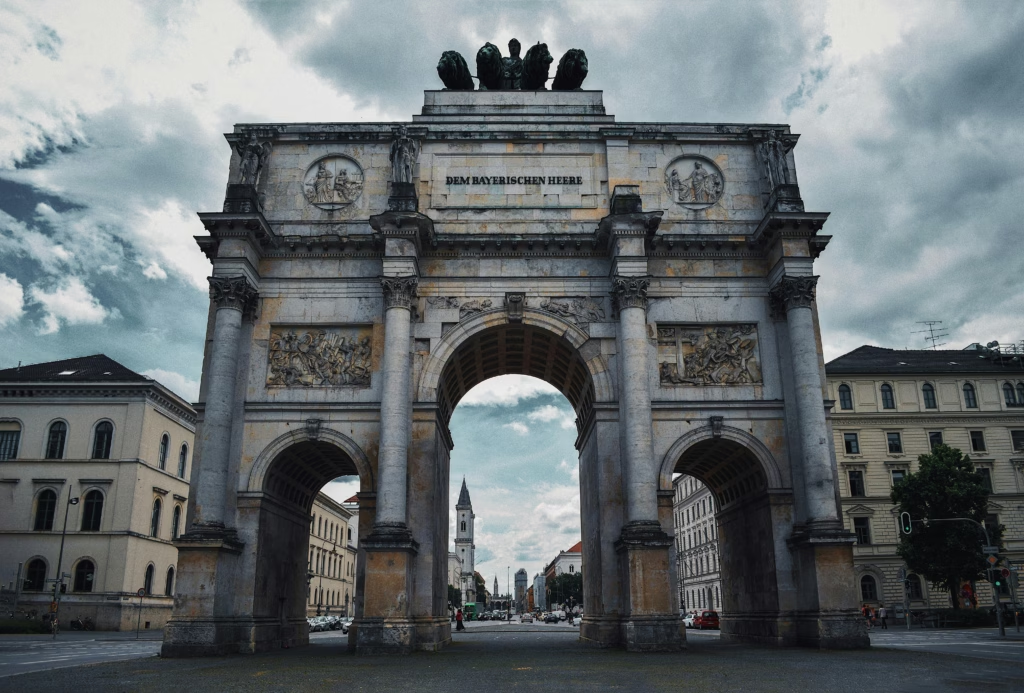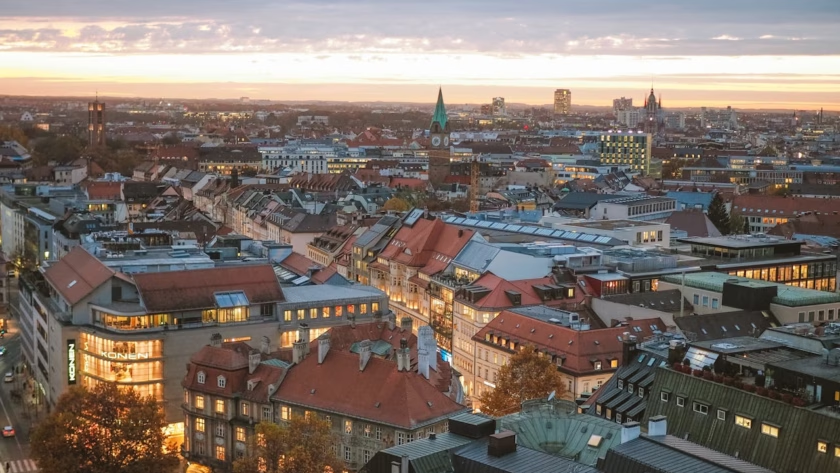Munich is one of Germany’s most desirable destinations, but many travelers ask: is Munich expensive? Yes, Munich is relatively expensive compared to other German cities, mainly due to its high quality of life and robust economy. However, with careful planning, budget-friendly options in accommodations, dining, and transport make it accessible to all travelers. In this comprehensive guide, we dive deep into Munich’s costs—from accommodation and dining to transportation and attractions—to answer this question once and for all. Whether you’re wondering, “how expensive is Munich?” or “is Munich expensive for tourists?” we’ve got you covered with up-to-date data, real comparisons with other European cities, and actionable money-saving tips.
- Is Munich Expensive? A Quick Overview
- Cost Breakdown: Accommodation, Food, Transport, and Attractions
- Comparative Analysis: How Expensive is Munich Compared to Other European Cities?
- Why is Munich So Expensive? Factors Driving Higher Costs
- Money-Saving Tips: How to Visit Munich on a Budget
- Is Munich Expensive for Tourists? A Detailed Guide
- Munich Cost of Living: What to Expect Daily
- Addressing Pain Points: What Competitors Often Overlook
- Comparing Munich to Similar European Destinations
- Practical Insights: Making the Most of Your Munich Experience
- Final Thoughts: Is Munich Expensive?
- Related articles:
Is Munich Expensive? A Quick Overview
In the first 100 words, let’s get straight to the point: is Munich expensive? The short answer is that while Munich can be pricier than many other German cities, it offers a variety of options for all budgets. As the gateway to Bavarian culture and innovation, Munich’s cost of living reflects its high quality of life, robust economy, and thriving tourism industry. In this article, we’ll break down exactly how expensive is Munich compared to its European peers, explain why Munich is expensive in certain areas, and help you plan your visit without breaking the bank.

Cost Breakdown: Accommodation, Food, Transport, and Attractions
Understanding the overall expenses in Munich is essential for any traveler. Here’s a detailed breakdown of the key areas where you’ll be spending money:
Accommodation: Options for Budget and Luxury Travelers
When it comes to finding a place to stay, Munich offers everything from luxury hotels to budget hostels and vacation rentals. Here are some points to consider:
- Luxury Stays: Upscale hotels in the city center or near popular attractions can cost significantly more. Prices often start around €150-€250 per night, especially during peak tourist seasons.
- Mid-Range Options: Mid-range hotels and serviced apartments are widely available, with nightly rates typically ranging from €80 to €150.
- Budget Accommodations: Hostels and budget guesthouses can offer dormitory beds or private rooms starting as low as €30-€60 per night, making Munich accessible for travelers on a tight budget.
For real-time data on accommodation prices, consider checking reputable booking sites like Booking.com or Expedia. Also, many travelers have found that using a service like Radical Storage can help cut down on extra expenses by securely storing luggage while you explore the city.
Dining Out: Food Expenses in Munich
Munich is known for its hearty Bavarian cuisine, but dining out doesn’t have to be expensive. Here’s a breakdown of food expenses:
- Traditional Bavarian Restaurants: A meal at a traditional beer garden or bistro can range from €15-€30 per person. Expect to pay extra for local specialties like Schweinshaxe (roast pork knuckle) or Weisswurst (Bavarian sausage).
- Casual Eats & Street Food: If you’re looking for a quick bite, street food vendors and local cafes offer meals for under €10. Grab a pretzel or a currywurst for a flavorful, budget-friendly option.
- Fine Dining: For those seeking an upscale dining experience, gourmet restaurants in Munich’s city center may charge upwards of €50-€100 per person. Reservations are recommended, especially during festivals like Oktoberfest.
The variety in dining options means you can tailor your expenses to your taste and budget. For more detailed insights into food costs and local recommendations, check out Munich Tourism which provides updates on the best eateries and local culinary events.
Transportation: Navigating the City
Munich’s efficient public transportation network is one of the best in Europe, making it relatively affordable for visitors:
- Public Transport: The MVG (Münchner Verkehrsgesellschaft) operates buses, trams, and underground trains. A single ticket within the central zones usually costs around €3-€4, while day passes and group tickets offer even better value.
- Bike Rentals and Walkability: Munich is extremely walkable, and bike rentals are a popular, eco-friendly option with daily rates often around €10-€15.
For updates on schedules and fare discounts, you can visit the official MVG website.
Attractions and Entertainment: Where to Splurge and Save
Munich offers a plethora of attractions, ranging from historical sites and museums to vibrant nightlife:
- Free & Low-Cost Attractions: Many museums, parks, and historical landmarks offer free entry or discounted rates on certain days. For example, strolling through the English Garden or exploring the Viktualienmarkt can be entirely free.
- Paid Attractions: Entrance fees for popular attractions like the Deutsches Museum or Nymphenburg Palace usually range between €8-€15. Consider investing in a Munich City Tour pass for discounted access to multiple attractions.
- Seasonal Events: Special events, particularly during Oktoberfest or the Christmas markets, may have additional costs. However, the unique experiences are often well worth the extra expense.
Comparative Analysis: How Expensive is Munich Compared to Other European Cities?
Travelers often wonder how Munich stacks up against other popular European cities. Below is a comparative table showing approximate average daily costs (in Euros) for a mid-range traveler in key expense areas:
| Expense Category | Munich | Berlin | London | Vienna |
| Accommodation (per night) | €100-€150 | €70-€120 | €150-€250 | €80-€130 |
| Meal (per person) | €15-€30 | €10-€25 | €20-€40 | €12-€30 |
| Public Transport (daily) | €7-€10 | €7-€9 | €12-€15 | €7-€10 |
| Attractions (daily average) | €10-€20 | €8-€15 | €15-€30 | €10-€20 |
Data is aggregated from various travel cost indexes and may vary based on season and availability.
From the table, you can see that while Munich is expensive, it isn’t the most expensive city in Europe. In comparison, London typically has higher accommodation and dining costs, while Berlin offers a relatively lower cost of living. This data-driven analysis helps answer questions like “is Munich more expensive than London?” or “is Berlin more expensive than Munich?” with clear comparisons.
Why is Munich So Expensive? Factors Driving Higher Costs
There are several reasons behind Munich’s reputation for high expenses:
- Economic Prosperity: As a major economic hub, Munich boasts high wages, robust job markets, and significant foreign investments. These factors drive up the cost of living.
- Tourism and Demand: Munich’s global appeal as a cultural and business destination means that demand for services—from hotels to restaurants—is consistently high, influencing prices.
- Cultural and Historical Significance: The city’s rich heritage and abundance of historical sites, museums, and annual festivals, such as Oktoberfest in Munich, attract millions of visitors, increasing overall expenses.
- Infrastructure and Innovation: High investments in infrastructure, public transport, and technology improve residents’ lives but also contribute to higher costs in the local economy.
Understanding these factors can help travelers appreciate the value offered by Munich and strategize accordingly when budgeting their trip.
Money-Saving Tips: How to Visit Munich on a Budget
Even though Munich is expensive, there are plenty of ways to enjoy the city without overspending. Here are some practical tips:
- Book in Advance: Secure accommodation and flight deals early, especially if you plan to visit during peak times.
- Travel Off-Season: Consider visiting during the shoulder seasons (late spring or early autumn) when prices for hotels and flights are generally lower.
- Use Public Transport: Take advantage of Munich’s extensive public transport network. Day passes or multi-day tickets can save you money compared to single fares.
- Free Attractions: Explore free activities such as walking tours, public parks, and local markets. Many museums also offer free entry on specific days.
- Local Eats: Instead of dining in high-end restaurants, enjoy local bakeries, food trucks, and casual beer gardens where you can savor Bavarian specialties at lower prices.
- Group Discounts: If traveling with friends or family, look for group discounts on accommodations and attractions.
- Luggage Storage: Utilize services like Radical Storage to store your luggage securely while exploring the city, saving on hotel costs if you have a late check-out.
For more detailed budget planning and local discount tips, check out travel forums and websites like Lonely Planet which provide updated traveler insights.
Is Munich Expensive for Tourists? A Detailed Guide
Travelers often ask, “is Munich expensive for tourists?” While the city has a reputation for high prices, the key is in the details. Here’s what you need to know:
- Tourist Packages: Look into city passes or bundled tour packages. These can offer discounted rates for attractions, public transportation, and even dining deals.
- Cost Comparison: Although Munich might be pricier compared to some parts of Germany, it often remains competitive when compared to other major European hubs like London or Paris.
Comparing Munich’s Tourist Costs with Other Cities
Here’s a quick comparison addressing common queries such as “is Munich more expensive than Berlin?” or “is Munich more expensive than London?”
- Berlin vs. Munich: Berlin generally offers more affordable accommodation and dining options, although Munich tends to have more reliable public transport and cleaner city environments.
- London vs. Munich: London’s overall costs—especially for hotels and dining—are typically higher, but Munich’s peak seasons can rival London’s prices.
- Munich vs. Vienna: Vienna often falls somewhere in between, with Munich being slightly more expensive in certain categories such as transportation and nightlife.
For further insights and traveler reviews, you can refer to comprehensive guides on TripAdvisor and Numbeo.
Munich Cost of Living: What to Expect Daily
Let’s break down a typical day’s expenses in Munich for a mid-range traveler:
- Morning:
– Breakfast: Enjoying a Bavarian pastry and coffee at a local café can cost around €5-€8.
– Transport: A daily public transport ticket (covering buses, trams, and trains) may cost about €7-€10. - Afternoon:
– Lunch: A typical lunch, such as a traditional sausage plate or a light meal in a beer garden, is approximately €12-€20.
– Sightseeing: Entry fees for museums or attractions can add €8-€15, though many historical sites and parks are free. - Evening:
– Dinner: A hearty dinner in a mid-range restaurant might run from €20-€35 per person.
– Entertainment: Evenings out at a local bar or cultural event can vary, but expect to spend an additional €10-€20.
Altogether, a mid-range traveler might budget between €60-€100 for a full day in Munich. Adjusting your daily itinerary and taking advantage of discounts can further optimize your spending.
Addressing Pain Points: What Competitors Often Overlook
While many articles discuss the costs in Munich, few address the real challenges that tourists face. Here are some pain points—and our solutions:
- Seasonal Price Spikes: During Oktoberfest or Christmas markets, prices soar. To avoid this, plan your visit during off-peak seasons or book well in advance to lock in lower rates.
- Balancing Experience and Budget: Some travelers feel pressured to splurge on every experience. Our advice? Prioritize experiences that align with your interests and allocate a daily budget that balances must-see attractions with downtime spent exploring the city’s vibrant neighborhoods.
For practical updates and advice, websites like Munich Info offer insights from locals and experts who know the ins and outs of the city.
Comparing Munich to Similar European Destinations
Understanding the cost of living in Munich is easier when you compare it to other popular European cities. Let’s take a closer look:
Munich vs. Berlin
Berlin is known for its vibrant art scene and diverse culture. Despite being Germany’s capital, Berlin often features lower accommodation and dining prices. However, Munich’s superior public transport, historical preservation, and quality of life justify its higher costs for many travelers.
Munich vs. London
London’s steep accommodation rates and expensive dining scene often put it in a higher price bracket compared to Munich. Even though Munich can feel expensive during peak tourist seasons, many aspects of daily expenses (such as transport and casual dining) remain more affordable than in London.
Munich vs. Vienna
Vienna offers a mix of affordability and high culture, with costs generally comparable to Munich. However, Munich’s local charm—marked by its Bavarian traditions, efficient infrastructure, and dynamic modern economy—can drive up certain costs while offering unique value for visitors.
This comparative analysis should help answer questions like “how expensive is Munich Germany?” and clarify the context for international travelers.
Practical Insights: Making the Most of Your Munich Experience
Despite the perception that “Munich is expensive,” there are plenty of strategies to make your visit both enjoyable and cost-effective:
- Plan Ahead: Use price-comparison websites for accommodations, flights, and activities. Early bookings can often lock in discounts.
- Local Apps and Maps: Download apps like MVG Fahrinfo or Google Maps for real-time updates on public transport and local recommendations.
- Cultural Passes: Consider investing in a Munich City Tour Pass which offers discounts on multiple attractions, ensuring you don’t miss out on iconic sites like the Marienplatz, Nymphenburg Palace, and the Deutsches Museum.
Travelers should also consider how much they want to experience. Spending a little extra on comfort or unique experiences may enhance your overall visit, while strategic savings can help you extend your stay and explore beyond the main tourist areas.

Final Thoughts: Is Munich Expensive?
In conclusion, while the answer to “is Munich expensive?” isn’t a simple yes or no, understanding your personal travel style and priorities is key. Munich’s higher costs are balanced by its unparalleled quality of life, safety, and cultural richness. Whether you’re planning a lavish vacation or a budget-conscious getaway, Munich offers options that cater to every type of traveler.
By comparing Munich with cities like Berlin, London, and Vienna, and by leveraging up-to-date data on accommodation, dining, and transport costs, this guide aims to provide you with the insights necessary to navigate Munich’s expenses smartly. We’ve covered why Munich is expensive, provided specific price comparisons, and even offered money-saving tips to help you plan a memorable trip without overspending.
For additional planning resources, consider checking out official websites such as Munich Tourism for the latest event updates and city guides, and the MVG website for transportation details.
Remember, every traveler’s experience is unique. Whether you find that “is Munich expensive” varies based on your choices, with a little planning and flexibility, you can enjoy one of Europe’s most dynamic cities while staying within your budget.


